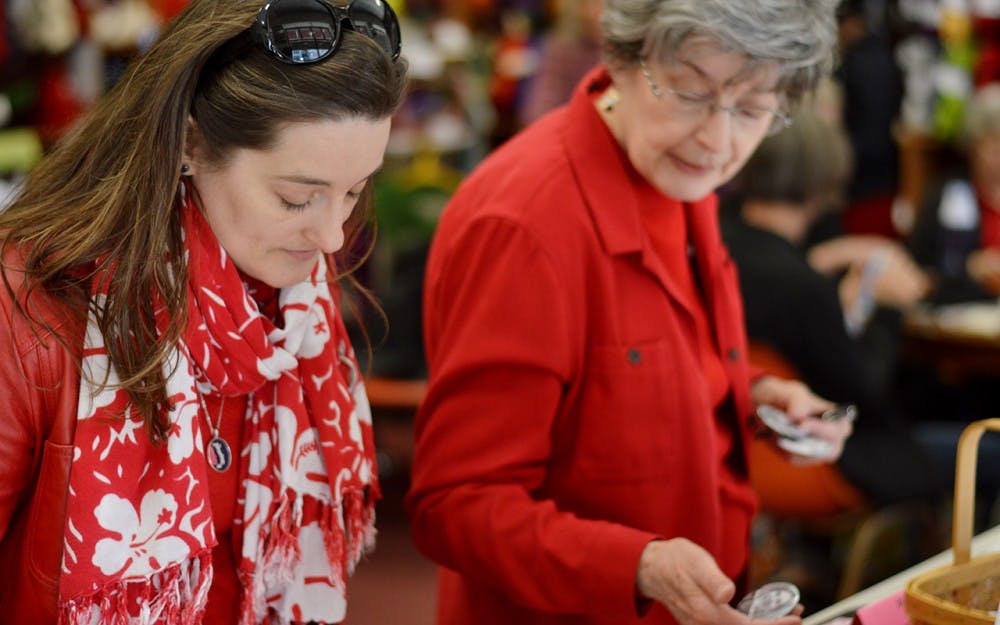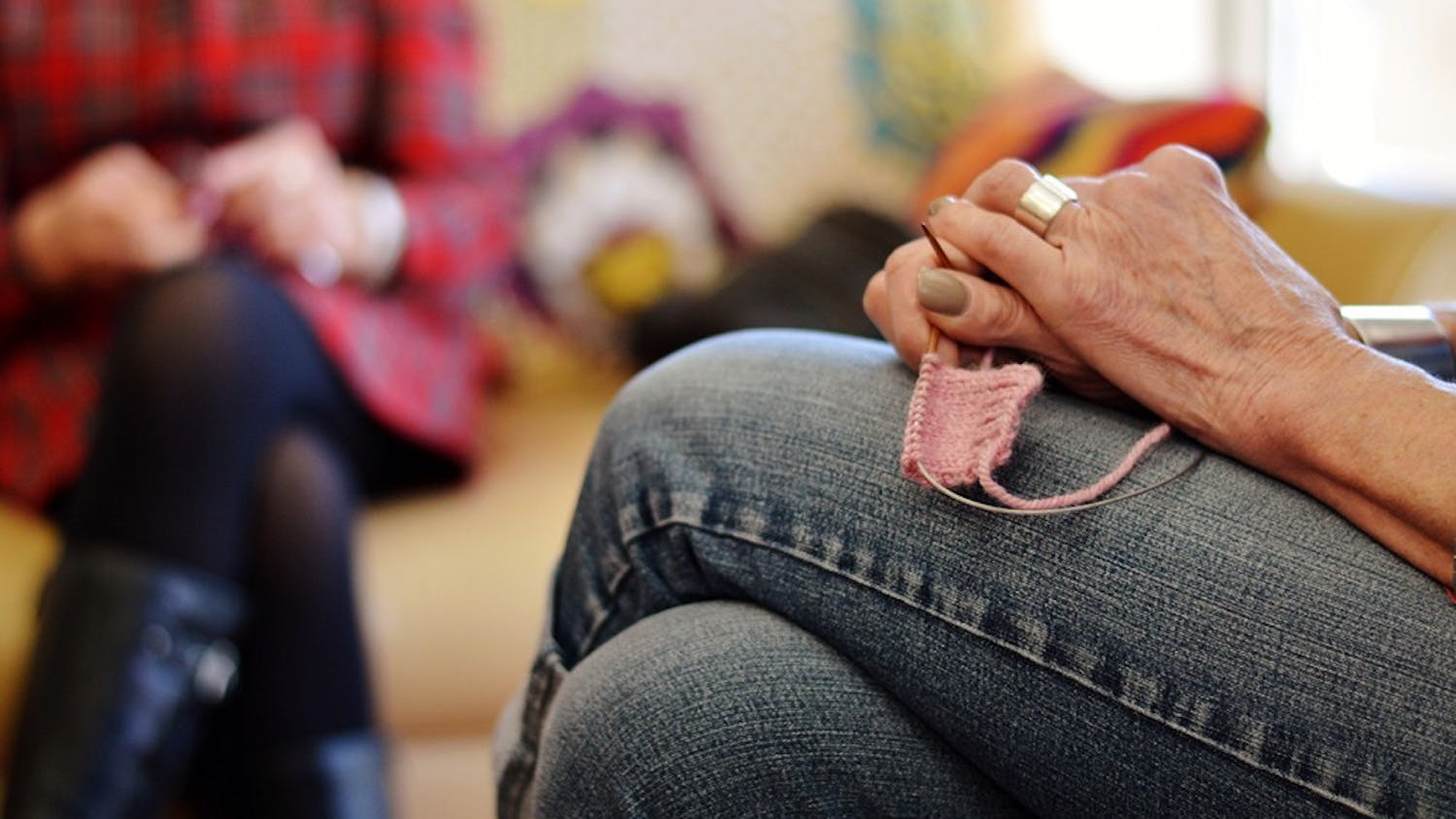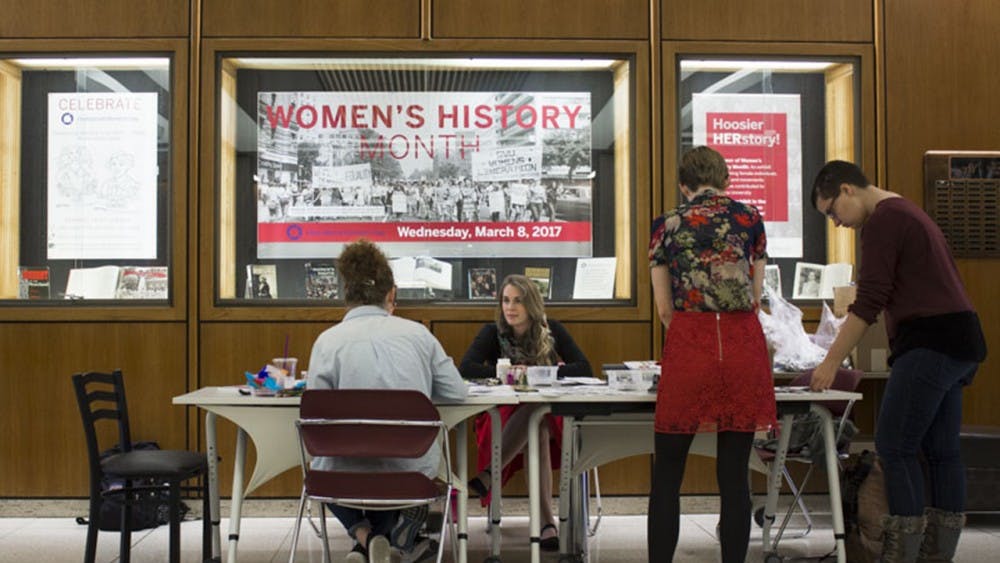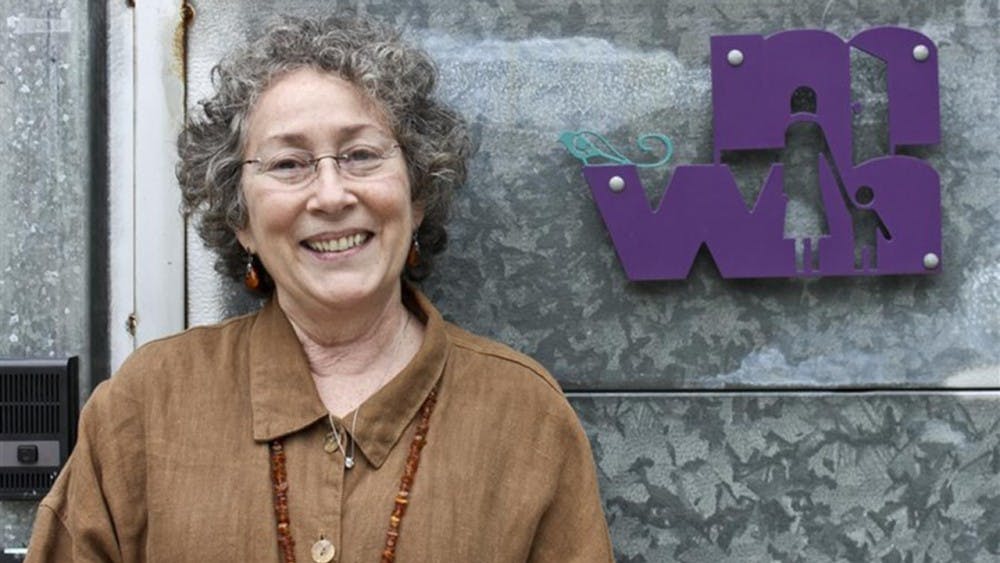Julie Hardesty wouldn’t be there to put new archival work into the production system. She wasn’t going to work on her proposal for a conference. She wasn’t available for open-source communications between departments and universities.
Instead, she was going to craft with her mother.
The pair first stopped by Herman B Wells Library to make pins of iconic women, including Michelle Obama, Rosa Parks and Ruth Bader Ginsburg. Then they headed to Yarns Unlimited, where they met dozens of women, clad in red and knitting tiny pink Pussyhats. These pins symbolized iconic women to come.
Hardesty, a metadata analyst for IU’s library technologies, used one of her vacation days to participate in A Day Without a Woman, a national protest. Women have had the legal right to equal pay for equal work for five decades. However, A Day Without a Woman organizers said they are still fighting to have their voices be heard within the workforce. The protest fell on International Women’s Day.
“I don’t know if anyone else did or not,” Hardesty said. “I’ll be interested to know when I come back if anyone else did.”
As part of its “10 actions/100 days” campaign, the Women’s March on Washington organziers urged women to take the day off from paid and unpaid labor. The labor strike was inspired by the bodega strike that took place in New York City and the Day Without Immigrants that happened nationwide in response to President Trump’s executive order banning immigration from seven Muslim-majority countries.
Hardesty said the most uncomfortable part of taking the day off was not the potential backlash from her peers but knowing not all women could afford to do so.
“People understand that being able to do this requires a certain amount of privilege to just take the day off,” she said. “I recognize that, and I felt like it was still important to make a statement and do it. “
The A Day Without a Woman campaign aimed to magnify women’s influence both in the workforce and economically. In addition to taking the day off work, women were encouraged to wear red and shop at female- or minority- owned businesses.
“Taking one day is not going to point out the idea that women are not valued in the workplace,” Hardesty said. “I don’t think that really gets across, but I feel like it’s something that keeps the idea in front of people that there are inequities for women in the workplace.”
In a staff of 34, Hardesty and her female coworkers make up about 30 percent in the library technology department, she said. On a national scale, 25 percent of mathematical and computer scientists are women despite women making up 44.5 percent of the overall workforce in 2010, according to the 2013 National Science Foundation report.
Although she considers her male counterparts to be supportive in the workplace, Hardesty does see the gender disparities in her field. Her female coworkers don’t discuss the gender gap, but they feel it.
“It’s not pointed or planned, but just knowing that everybody who’s in charge is a guy — there’s that acknowledgment,” Hardesty said.
Farrell DiBart, a web developer for the Kelley School of Business, has always found herself in male-dominated realms — it’s where she feels most comfortable. DiBart admits it’s difficult to find other women who like computer games and “Dungeons and Dragons,” but that’s what makes her feminism stronger, she said.
“I want women to feel more comfortable in all spaces as opposed to just those boxes people have us in,” she said.
DiBart took the day off from two roles. Her job at IU and her job as a mother of six-month-old twins James and Esme.
“A lot of the reason I took this day off was because I thought to myself ‘When was the last day I had the day off?’ and I couldn’t remember,” she said.
Using her designated paid time off, DiBart adorned her own pink Pussyhat as she joined women at Yarns Unlimited in making pins that would be donated to Middle Way House.
She is the only woman on her team of six that update all the websites for Kelley. The department is hiring a new batch of interns soon. DiBart is hoping for a woman.
“I spend a lot of time around guys, and I honestly just wanted to come here and be around women,” DiBart said.
IU gave DiBart 12 weeks of paid maternity leave, but she came back to work a week early. She wanted to save a week for emergencies.
Even with the support of her male coworkers during and after her pregnancy, DiBart said she still finds it challenging to be away from her twins while she’s at work. She can’t help but miss them.
“During the weekends I just hold them,” she said.
In addition to making and selling pins, women wrote postcards to Indiana representatives like Sen. Todd Young, R-Indiana; Rep. Trey Hollingsworth, R-9th District; and Sen. Joe Donnelly, D-Indiana. These direct messages to those in charge are how the message of the Women’s March on Washington will continue, Hardesty said.
“If women are going to be treated equally then we need to keep the issue alive and keep it in front of everybody,” she said, “not just when a man goes and says something crazy in the public realm.”
Farrell DiBart works in IT. Since she’s in a male dominated field, it’s even more important that she’s a feminist. https://t.co/EOe3awWmHU pic.twitter.com/xELiTUzzUi
— IndianaDailyStudent (@idsnews) March 9, 2017






